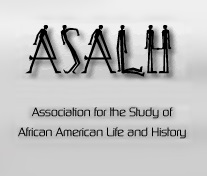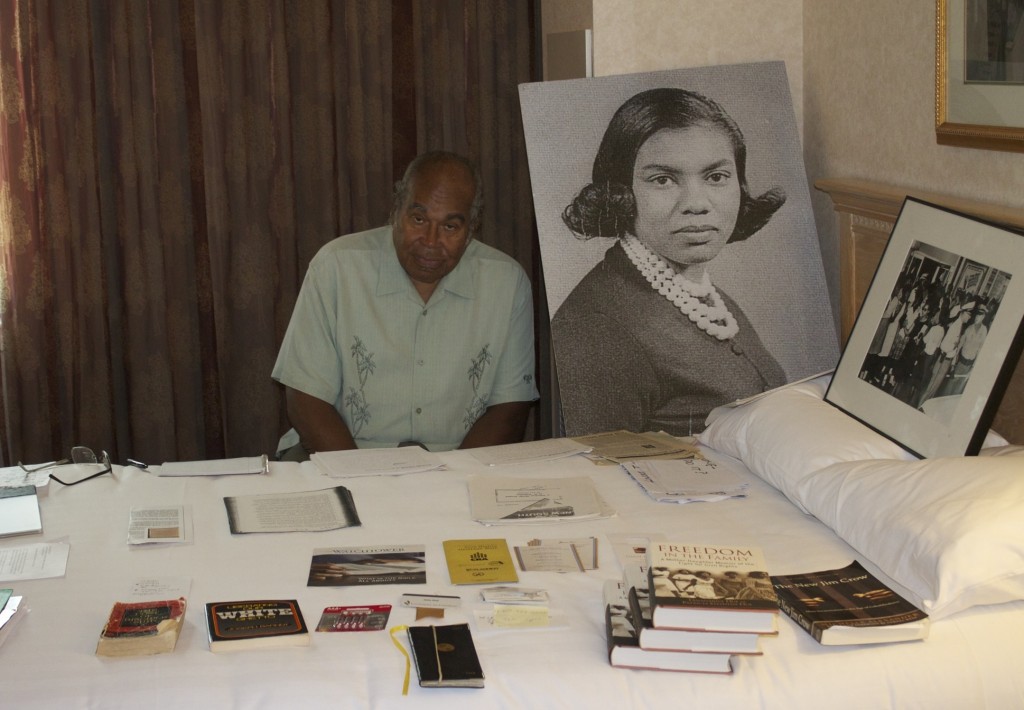
During the first week of October, the African American History Project (AAHP) presented at the 98th Annual Conference of the Association for the Study of African American Life and History (ASALH) in Jacksonville. The panel, entitled “Teach Them How to Sing: Harry T. Moore and Patricia Due, Florida’s Activist Educators” featured presentations from Attorney John Due, and AAHP graduate coordinators Ryan Morini and Justin Dunnavant. Dr. Paul Ortiz moderated the panel. A full schedule of speakers and events from the conference is available online.
The ASALH Annual Meeting is an occasion to explore the history and culture of Africans and people of African descent. The convention brings together more than one thousand people–academics, community builders, educators, business professionals and others–who share an abiding interest in our annual theme. For nearly a century, scholarly sessions, professional workshops, and public presentations have served to analyze and illuminate the contributions of people of African descent to the world.
With more than 175 panels featuring our members who are prominent figures in Black cultural studies, as well as scholars and students from all disciplines, the ASALH Conference presents an optimal opportunity for leading academicians to present research and current projects, and to learn about leading projects in the field of African American History.
With standing room only, Ryan Morini presented on oral history methodology. He described the history of AAHP and shared clips of interviews with former Lincoln High School students and educators to highlight the emergent themes of the Black High School Alumni Associations as well as the politics of memory and nostalgia. Justin Dunnavant presented on the significance of educator activists in Florida Civil Rights. Using the life of Harry and Harriette Moore, he explored the role activist educators played in desegregating Gainesville and gathering resources for black schools.
Concluding the panel, Civil Rights Attorney John Due led us into “Ain’t Gonna Let Nobody Turn Me Round.” He then continued reflecting upon a life of activism of his wife, Patricia Stephens Due. In connecting the struggle to today, Due forewarned young activists not to blindly repeat the activist strategies of the 1950s and 60s but to learn from them and chart a new way forward. He shared his pride in the work of the Dream Defenders.

Before the panel, Justin sat down with John Due for an interview about the history of his activist work in Florida, focusing on social justice and civil rights. Mr. Due was also interviewed in Gainesville in 2011. The interview is available online at the University of Florida Digital Collections.
—Justin Dunnavant, October 2013